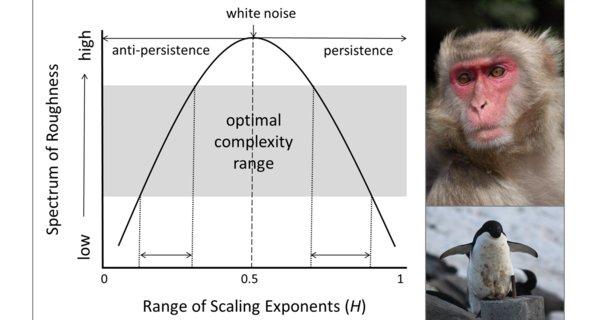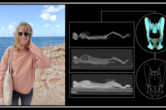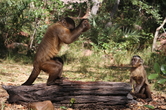The Math Behind the Monkey

In 2013, Andrew MacIntosh of CICASP was one of two awardees of the Takashima Prize for outstanding research. The Takashima Prize is awarded annually to a (young) member of the Primate Society of Japan in conjunction with Kyouei Steel, LTD.
MacIntosh was awarded the prize for his work demonstrating how interdisciplinary studies of complex phenomena can provide novel insight into ecological processes. Now, an expanded version of this work appears in an invited paper published this month in the journal Primate Research.
Fractal Primates
In the essay, MacIntosh paints an enriching picture of the role of complexity in behavioral ecology, calling upon a large body of literature comprising various applications of fractal theory and complexity science in ecology and evolution. The essay covers the basics of fractal geometry and provides numerous examples throughout of how and why its analysis has been employed in biological and ecological studies.
In particular, MacIntosh focuses on three approaches often used to examine animal behavior through the fractal lens, including the Lévy flight foraging hypothesis, spatial fractal dimension estimates and fractal time. He then goes on to illustrate how fractal analysis can be used as an eco-indicator of animal or environmental ‘quality’.
Complexity, complexity loss and optimal biological systems
His and a host of other work supports the hypothesis that complexity is biologically adaptive, so complexity loss - which refers to the subtle but greater periodicity or stereotypy often observed in the behavior of biological systems under stress or disease - is not only indicative of altered or impaired condition but may in addition carry with it significant long-term consequences.
Mimicking pioneers in the field of complexity science such as Benoit Mandelbrot, 'the father of fractals', MacIntosh emphasizes that interdisciplinary research - incorporating ideas and methods from fields outside of our own areas of specialization - stands to enrich any scientific endeavor and offers unprecedented insight into complex phenomena in the lives and activities of organisms all around us.
MacIntosh continues to apply this approach to investigations of primates and beyond, with the hope that 'complexity signatures' might one day become a useful predictor of the various challenges facing animals in their natural and increasingly human-influenced environments. He and his students and collaborators are currently working toward this goal using various study systems, including wild primates in Japan and elsewhere, penguins in Australia and Antarctica, and other systems currently being developed.
Access the complete essay on the journal's website at Primate Research.











